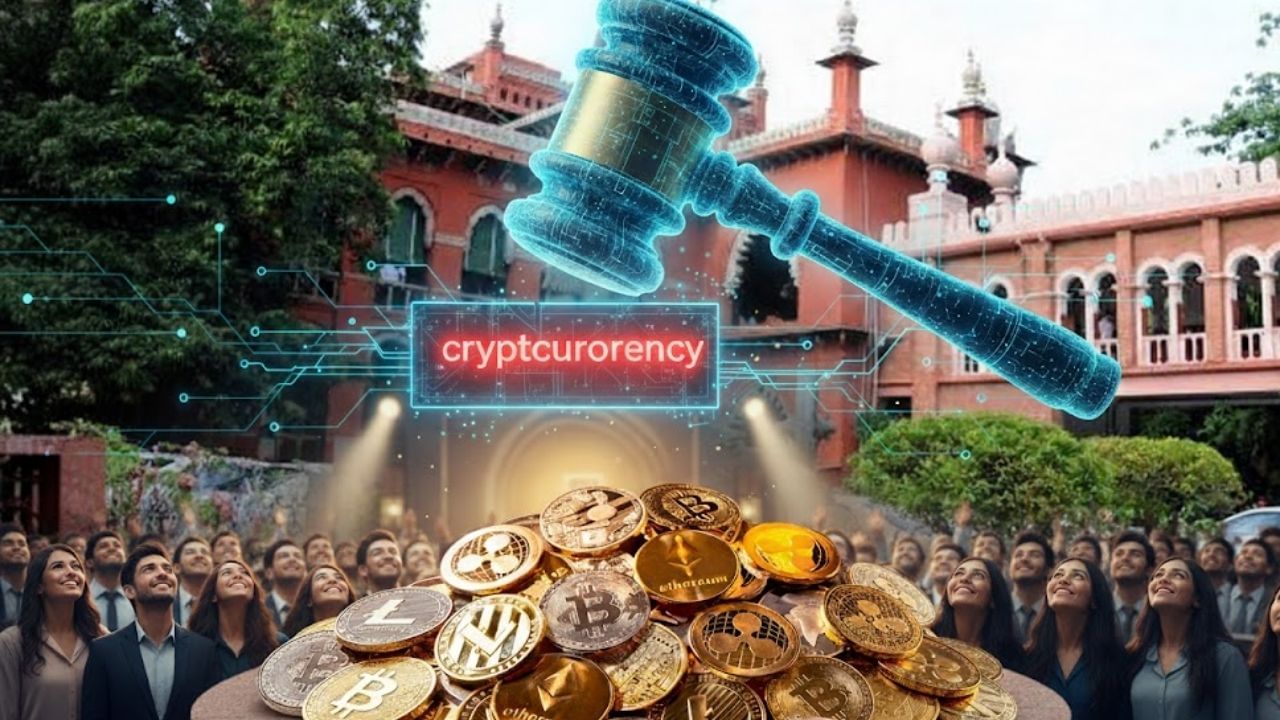Cryptocurrency will be considered ‘property’
Today is a historic day for the future of cryptocurrency in India. In fact, in a decision, the Madras High Court has given the status of ‘property’ to cryptocurrency. This is not just a legal term, but this decision gives the legal protection to millions of crypto investors in India, which they have been waiting for for a long time. Now your digital assets will get the same legal protection as any other asset, especially in situations like fraud, hacking or exchange closure.
What did the court say?
This entire matter is related to a cyber attack on WazirX exchange in 2024. After this attack, an investor’s XRP tokens were frozen. While hearing this case, Madras High Court made this big comment. The court clearly said that cryptocurrency “Property that can be owned, enjoyed, and held in trust.”
In simple language, the court has considered it an ‘intangible property’. This decision will not only be binding in Tamil Nadu, but will also set a strong precedent for other courts across the country. This is also in line with the 2020 decision of the Supreme Court, which lifted the banking ban of RBI.
You are the ‘owner’ of your property, not the ‘user’
This decision completely changes the legal status of investors. Till now you were considered just a ‘user’ on an exchange, but now you will be considered the ‘actual owner’ of your token. The Supreme Court has also said earlier that investors are not just users but beneficiaries of the trust.
This means that exchanges like WazirX are only ‘custodians’ i.e. keepers of your tokens. They cannot freeze your tokens, give them to anyone else, or use them to recover their losses without your permission. Even in the WazirX case, the court stopped the platform from doing so.
Direct relief will be provided in case of fraud, hacking and bankruptcy
The biggest advantage of this decision is that now investors will get the same ‘civil protection’ which any other movable property gets.
- Bankruptcy: If an exchange (like FTX) goes bankrupt, you can approach the NCLT (National Company Law Tribunal) and argue that your digital assets are not part of the company’s assets and cannot be sold in liquidation.
- Legal Relief: In case of any fraud or hacking, you can approach the court to get your tokens back or recover their value.
- Right to FIR: In cases of fraud, investors will now be able to lodge FIR under Section 66 of the Information Technology Act (IT Act) and Indian Justice Code (BNS).
- Stop order: If needed, investors can also seek an order (injunction) from the court to stop the exchange from selling or transferring tokens.
No impact on tax rules
Let us tell you that there will be no change in the tax imposed on crypto due to this decision. Investors will continue to pay 30% tax (section 115BBH) and 1% TDS (section 194S) on their earnings.
Rather, when the court has accepted it as ‘property’, the government’s claim to collect tax has become even stronger. This decision also increases the responsibility of exchanges under PMLA (Prevention of Money Laundering Act). Now they will have to follow more transparent audit and strict KYC rules.
